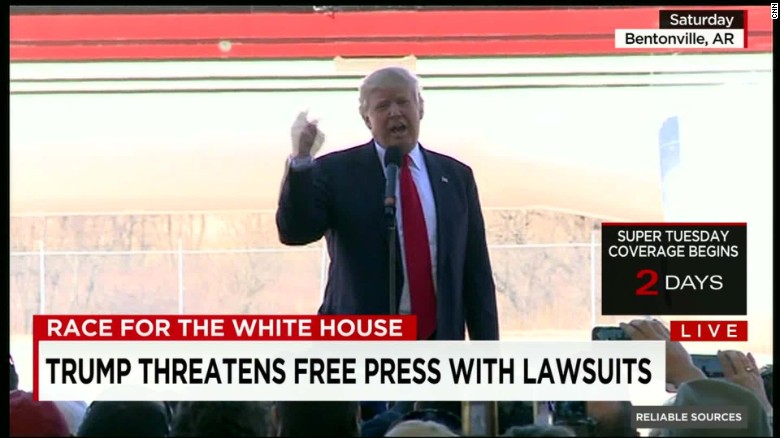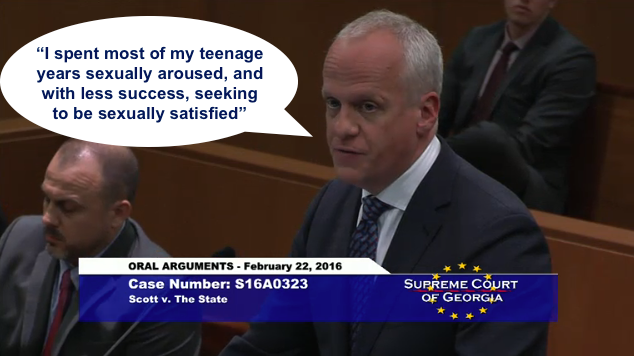It’s been a number of years now since I’ve run April Fools’ gags. But the time was right to come out of retirement.
For those new to this joint, I ran them from 2008-2012, and had a lot of fun. I do it with a motive. And, as I do here today, I always have a deconstruction the next day, because a gag without a point isn’t much fun to do.
This includes my gig as the official White House Law Blogger, that punked the NY Times, as well as a 23-blog conspiracy the following year that sent readers round in web circles. My first, and one of my favorites, was the time the Supreme Court had three justices recuse themselves in a fantasy baseball case, because they were involved in a high court league themselves.
OK, enough about the past. Yesterday I took on Donald Trump for his conduct in bringing a frivolous defamation claim that I wrote about last year.
And in doing so, I confess it wasn’t an easy thing to do. Within minutes of the post going up, folks that knew my prior pranks were already hollering that, on this particular day, they wouldn’t believe a word I wrote, no matter what. The passage of four years, it seems, did nothing to diminish my April Fools’ Day reputation.
But the hoax had a point to make (or I wouldn’t do it), and it was rather straightforward: I’ve now been sued twice for defamation for my writings on this blog (Rakofsky and Katz). Both cases were completely frivolous and tossed into the judicial trash can on an immediate motion to dismiss. No discovery, no answer, no nothing, other than my motion to chuck it. But neither judge wanted to go the sanctions route, despite being so clearly warranted.
Such is the judicial culture in New York.
I followed up with an op-ed in the NY Law Journal, calling on the Legislature to approve Anti-SLAPP legislation that was pending. Vacuous suits, and threats of suits, serve to chill free expression. If you are fearful of writing your opinion, or using satire, parody or any other literary device to make a point, then your First Amendment rights have been devalued.
Enter, stage right, Donald Trump and his comments to a Washington Post reporter about a defamation suit he brought (and lost):
Trump said in an interview that he knew he couldn’t win the suit but brought it anyway to make a point. “I spent a couple of bucks on legal fees, and they spent a whole lot more. I did it to make his life miserable, which I’m happy about.”
Add to hit the numbers defamation suits he has brought or threatened (like the recent threat to sue Sen. Ted. Cruz)
And so, when my scheduled depositions on Thursday busted, I had an extra few hours to put on my jester’s hat and make use of our glorious First Amendment by slapping together this “decision” by a judge that sanctioned Trump for a whopping $500M. Who better than the Official White House Law Blogger to write it up?
 The judge in the hoax, by the way, was Lester Bruce Sullivan, aka, L.B. Sullivan, better known as the guy who helped make First Amendment history by losing an important piece of litigation: New York Times v. Sullivan.
The judge in the hoax, by the way, was Lester Bruce Sullivan, aka, L.B. Sullivan, better known as the guy who helped make First Amendment history by losing an important piece of litigation: New York Times v. Sullivan.
Was that $500M a dumb number? You bet it was. But that was the laughable number that Trump sued for, in order to get headlines. Which it did. So my “judge” thought that was the fitting sanction.
The point of the exercise was to show that, when folks have money, they can stamp on the First Amendment rights of others simply by making “life miserable,” in Trump’s own words.
Unless, of course, the weight of a real sanction makes them weigh that decision more carefully.
The use of sanctions should not be confused with costs or some kind of fee shifting merely because someone has lost. This isn’t an issue, after all, of two sides each saying they had the green light, or two experts in a medical malpractice case disagreeing on the standard of care.
No, this is an entirely different beast: This is about those that deliberately abuse the legal system, even when they know full well beforehand that there is utterly and completely no merit to the claims.
The Legislature should take action: The time to pass the Anti-SLAPP legislation is now. If, that is, you believe our free speech rights are important.
[Addendum, 4/4, A reader who is on staff in the Assembly has pointed out that the NYS Assembly passed this legislation three times: in 2014, 2015, and 2016. It is the Senate which has not passed it to date.]
My thanks to Paul Alan Levy at Public Citizen and Scott Greenfield at Simple Justice for likewise blogging on the subject to help push the story.





